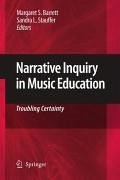
Wind Bands and Cultural Identity in Japanese Schools (eBook, PDF)
Versandkostenfrei!
Sofort per Download lieferbar
72,95 €
inkl. MwSt.
Weitere Ausgaben:

PAYBACK Punkte
36 °P sammeln!
This well researched volume tells the story of music education in Japan and of the wind band contest organized by the All-Japan Band Association. Identified here for the first time as the world's largest musical competition, it attracts 14,000 bands and well over 500,000 competitors. The book's insightful contribution to our understanding of both music and education chronicles music learning in Japanese schools and communities. It examines the contest from a range of perspectives, including those of policy makers, adjudicators, conductors and young musicians. The book is an illuminating window...
This well researched volume tells the story of music education in Japan and of the wind band contest organized by the All-Japan Band Association. Identified here for the first time as the world's largest musical competition, it attracts 14,000 bands and well over 500,000 competitors. The book's insightful contribution to our understanding of both music and education chronicles music learning in Japanese schools and communities. It examines the contest from a range of perspectives, including those of policy makers, adjudicators, conductors and young musicians. The book is an illuminating window on the world of Japanese wind bands, a unique hybrid tradition that comingles contemporary western idioms with traditional Japanese influences. In addition to its social history of Japanese school music programs, it shows how participation in Japanese school bands contributes to students' sense of identity, and sheds new light on the process of learning to play European orchestral instruments.
Dieser Download kann aus rechtlichen Gründen nur mit Rechnungsadresse in A, B, BG, CY, CZ, D, DK, EW, E, FIN, F, GR, HR, H, IRL, I, LT, L, LR, M, NL, PL, P, R, S, SLO, SK ausgeliefert werden.













